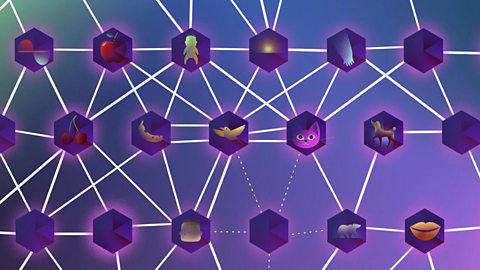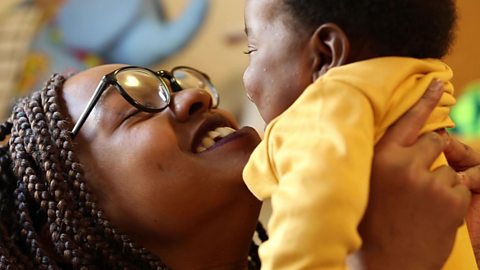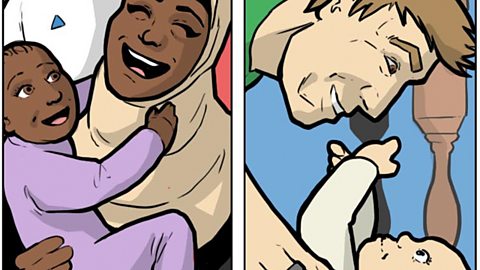In the hours and days after giving birth, chances are you’re spending most of your time getting to grips with being a parent.
And you’re not the only one adapting to your new life. Your baby is going through big changes as well. Their brains are highly active and working hard to make sense of the exciting new world around them. And you can help them…
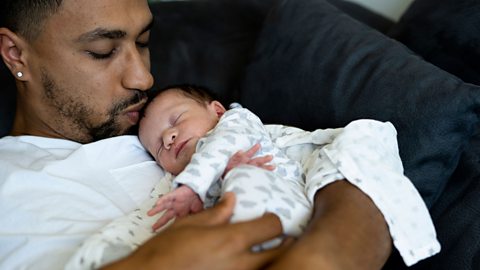
Dr Sarah Lloyd-Fox from the says, “The way you interact with your baby from birth builds their ability to respond and interact with their surroundings.”
Here are five surprising facts about your baby’s growing brain.
1. Your baby communicates with you from the moment they’re born
It may look like all they do is feed and sleep, but this couldn’t be further from the truth.
“In the first weeks of life your baby communicates with you in more ways than you might be aware of,” says Dr Lloyd-Fox. “As they get older, you will experience more and more moments of alertness where you can communicate with them.”
Tip:
When your baby makes eye contact and coos, they want you to do the same. And research shows speaking in a sing-song ‘parentese’ voice can boost your baby’s brain. Don’t worry if you feel a bit daft sometimes. Often for new parents this will be the first time you’ve spoken in such an exaggerated baby-friendly voice. Your little one will love it – and learn from it – but look out for signs they’ve had enough.
“Your baby might turn away or sneeze” says Dr Lloyd-Fox. “These can be signs that they need a break, so rather than speaking louder or moving closer, give your baby a few moments. They may allow you to engage with them again after a few seconds of rest.”
2. Your baby understands what you’re saying… even before they can speak
Just because your baby can’t talk doesn’t mean they can’t understand what you’re saying.
“Babies gain an understanding of words far more rapidly than you might believe,” says Dr Lloyd-Fox. “They understand many words before actually being able to say them.” One study found nine-month-old babies recognise when a word does – and doesn’t – match a familiar picture. For example, by saying, ‘Look at the duck’ and then showing a duck or a banana, babies’ brains show different patterns of response to each picture.”
Tip:
Your baby is learning fast. But they still need a bit of extra time to remember what the new words they are hearing actually mean. Dr Lloyd-Fox says, “From the age of six months you can look at books with your baby. When they are a few months older and you are reading to them, ask a question such as, ‘where is the cat?’. Count 10 seconds in your head before asking them again. They need more time than you think to find what you have asked for.”
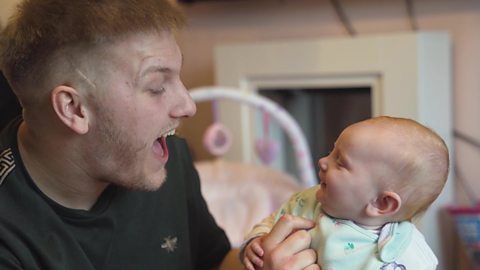
3. Your baby constantly learns from you
Babies make sense of the world by watching what other people are doing. And this means most of the time, they are learning from you.
“Help them by giving them signals or cues to boost their learning,” says Dr Lloyd-Fox. “These cues could be anything from direct eye contact before shifting your gaze towards interesting objects through to smiling or gasping. From the first months of life, combining different cues while you interact with your baby activates parts of their brain used for understanding the world around them.”
Tip:
You don’t need toys to boost your baby’s brain. “Use daily tasks to engage with them, like loading the washing machine, hanging out washing or preparing some food,” says Dr Lloyd-Fox. “Talking in silly sing-song voices along with other cues works just as well as playing with a toy.”
4. Your baby is laughing as they learn
Hearing your baby giggle for the first time at around three to six months is an incredible moment. But it may surprise you to know that laughter helps them make sense of the world around them.
Dr Lloyd-Fox says, “Research suggests that a sense of slight uncertainty at a new experience causes babies to giggle. For example, a silly voice from someone they know; someone pretending to bump their head while making a silly sound or facial expression or blowing raspberries on their tummy and causing a new physical sensation.”
Tip:
Don’t be put off if your growing baby doesn’t raise a smile at things that made them LOL when they were tiny. Dr Lloyd-Fox says, “Babies laugh at different things as they get older. What they laugh at shows how their brains are developing. For example hiding your face behind a blanket and appearing again is often funny during a time when babies are beginning to learn a concept known as ‘object permanence’. This is understanding that even when an object is hidden from view it still exists. When they no longer laugh at a peek a boo action it's because they've learned what's going to happen and start to predict it.”
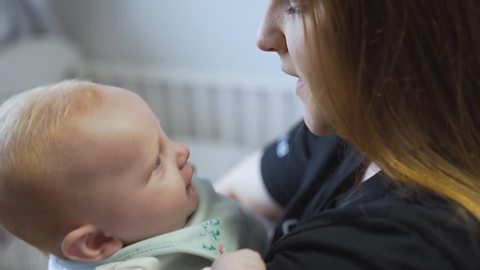
5. Your baby’s brain changes very quickly
From the moment your baby is born, their brain responds to things happening around them.
“When people talk and interact with them (such as during peek a boo) the part of a newborn’s brain that responds is the same as that in adult brains,” says Dr Lloyd-Fox. “What’s remarkable is that their responses change even in the first few days of their lives, which suggests their brain is developing quickly.”
Tip:
In the times that your baby is not sleeping or feeding during those first days, hold them close to you; newborns can only see up to distances of around 30cm. “Try to meet their gaze while speaking to them,” says Dr Lloyd-Fox. “This will allow them to learn more about faces. They’ll also learn that the voice they heard while you or your partner was pregnant links to the face that they see before them.”

